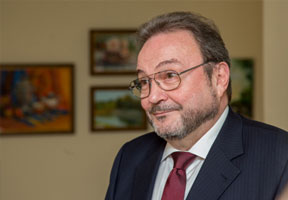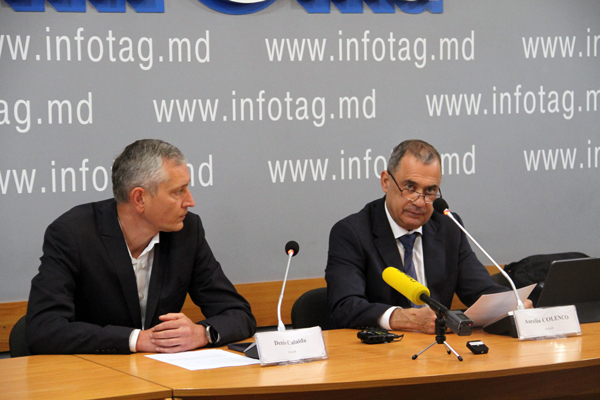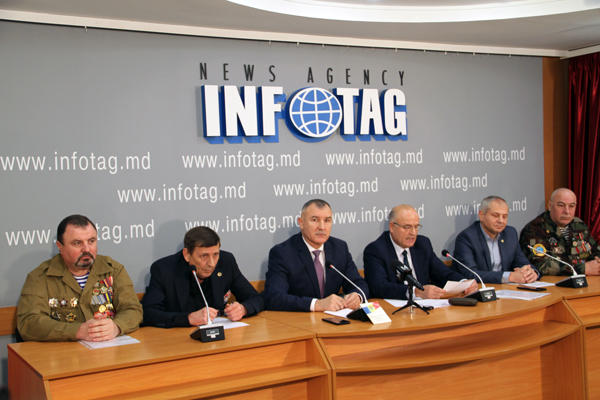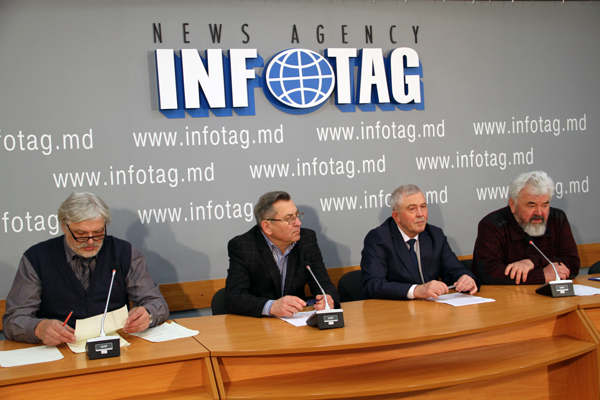Transnistria and Gagauzia
RUSSIA'S SPECIAL REPRESENTATIVE SAYS PAUSES IN TALKS LEAD TO NEW PROBLEMS

President Putin's Special Envoy at the Transnistria negotiations, Russian Foreign Ministry Ambassador-at-Large Sergey Gubarev has offered an opinion that long pauses between rounds of the 5+2 format negotiations only promote the accumulation of problems and their deepening.
At the end of his two-day-long negotiations in Chisinau and Tiraspol, the diplomat appeared at a news conference in the Moldovan capital on Wednesday, expressing hope that the next round of the 5+2 format talks would take place "in a foreseeable future".
"I am imagining with sorrow how our next official meeting will look like. A greater length of it will be the sides' reciprocal accusations, so I'm afraid the interlocutors will hardly be able to reach agenda questions proper. Indeed, such a situation would hardly develop had our meetings been held regularly", said the Special Representative.
Sergey Gubarev reminded that the negotiation stakeholders met last at the informal meeting in Berlin in June 2016 under the German OSCE presidency.
"It is clear that after such a long time gap, the next meeting will not bring tangible results and will be not productive", said Sergey Gubarev.
He named as erroneous the Austrian OSCE presidency's access to this question.
"The Austrians are insisting that every 5+2 meeting should be crowned with the achievement of concrete accords on concrete problems. I have stated openly and am continuing to assert that if the sides had been able to act this way, there would be no need of whatever international mediation. Chisinau and Tiraspol would have long agreed on everything, and the Transnistrian problem would have been long settled. To my great regret, I appear to be right, and not our Austrian colleague", said the Russian Special Representative.
Sergey Gubarev remarked that when the current negotiation platform was being shaped, currently known as the 5+2 negotiating format, it was based on a certain philosophy - that the informal leader of this process would be the OSCE.
"Once a year, OSCE presidency goes over to another country, and each country comes to the scene with its own vision of how the Transnistrian problem should be solved. So, let's wait for the next year. I hope very much that the next, Italian OSCE presidency in 2018 will be more efficient than the incumbent Austrian one", said Sergey Gubarev.
The diplomat underlined that the documents, adopted during the organization of the 5+2 negotiating format, stipulate the advisability of holding 5-6 rounds of 5+2 talks every year. He believes that such a frequency of sessions can ensure an efficient work and finding of solutions, "and the fact that this fails to take place is an indication that the negotiating process is in a deplorable state".
Earlier, the Special Representative of the Austrian OSCE Chairperson-in-Office for the Transnistrian Settlement Process, Ambassador Wolf Dietrich Heim, stated that negotiation rounds should be held only when the sides have achieved preliminary agreements on concrete problems. Chisinau and Tiraspol put forward 4 questions each, which could be solved in the interests of the people living on the Dniester banks. The sides' profiled working groups are negotiating solutions, but so far they are not able to offer compromise-like variants fit for consideration and adoption in the 5+2 negotiating format [Moldova and Transnistria as the conflicting sides, Russia, Ukraine and the OSCE as international mediators and guarantors (5); and the European Union and the United States as observers (2)].
























Add Comment